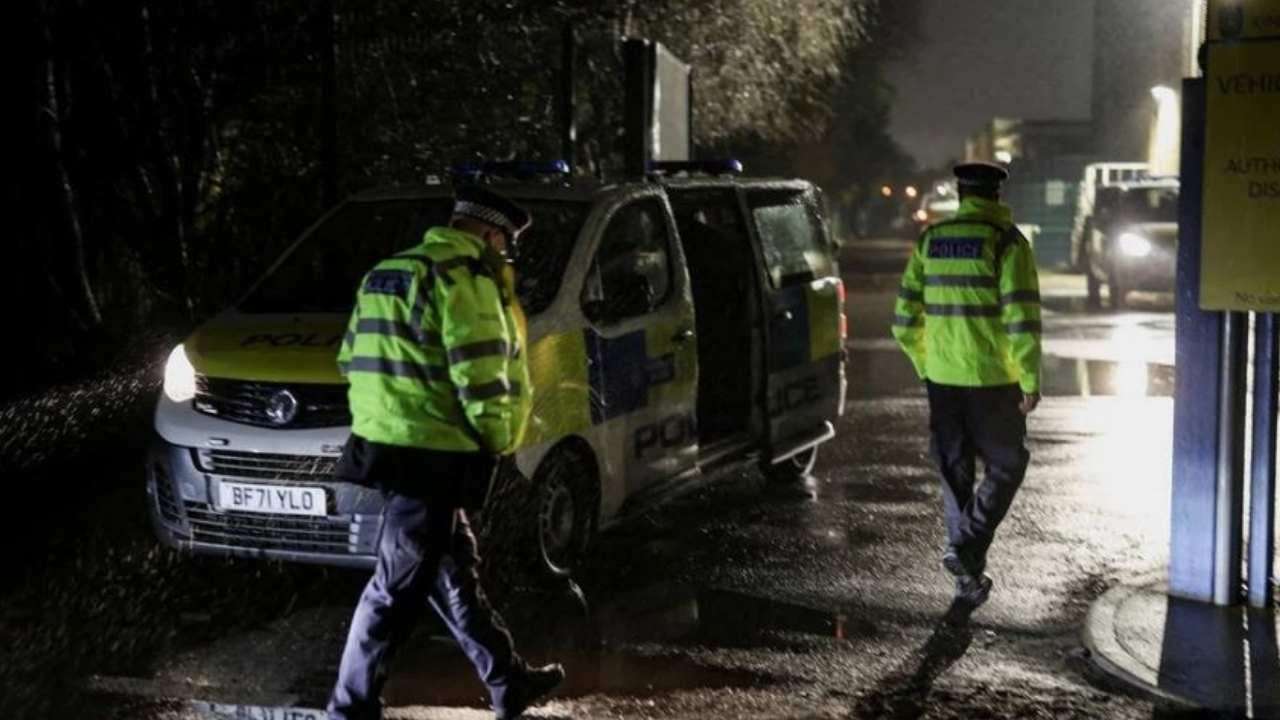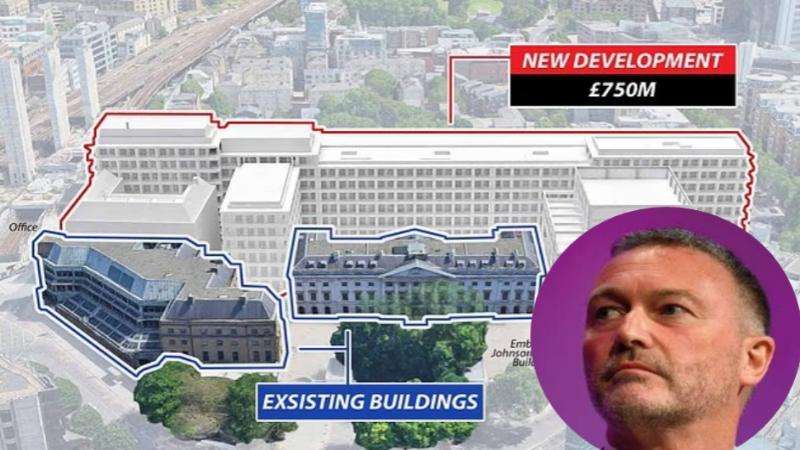local fury over security risks pile pressure on Housing Secretary Steve Reed, whose decision is now expected to be pushed to November, Daily Dazzling Dawn confirmed. The controversy surrounding China’s proposed 'super-embassy' at the historic Royal Mint Court in Tower Hamlets has intensified, forcing the Labour government to delay its final decision amid a fierce political backlash and escalating national security concerns.
Housing, Communities and Local Government Secretary Steve Reed is now expected to defer the decision—originally due by October 21—until November, sources close to the ministry indicate. This postponement follows growing pressure over the security implications of the huge diplomatic compound and a furious row ignited by the recent collapse of a high-profile Chinese espionage case.
Tower Hamlets Council's Standout Role-The local authority, Tower Hamlets Council, has played a crucial and consistent role in blocking the project, acting as a bulwark against Beijing’s plans.
Initial Rejection: In December 2022, the Council’s Strategic Development Committee unanimously rejected China's planning application. The primary reasons cited were concerns over resident and tourist safety, the impact on police resources due to anticipated large-scale protests, and highway safety in the congested area near the Tower of London.
The "Call-In": Following Labour's general election victory last year, the application was resubmitted. Then-Deputy Prime Minister Angela Rayner intervened, using her ministerial powers to "call in" the decision, effectively taking the final authority out of the Council's hands. This action, revealed by Sir Keir Starmer after a discussion with President Xi Jinping, was seen by critics as a move to placate Beijing.
Restated Opposition: Despite the central government's intervention and the subsequent public inquiry, the Council's Strategic Development Committee reaffirmed its intention to refuse the application in December 2024, maintaining that the development would have been rejected had the final decision remained local. This formal position forms the basis of the Council’s case at the subsequent public inquiry.
Local Residents' 'No Regard' View-
The proposed 20,000-square-metre complex, set to be Europe's largest embassy, has been met with staunch and organised opposition from local residents and human rights activists.
Safety and Disruption: Residents, particularly those from the Royal Mint Court Residents Association, are primarily concerned about the inevitable major disruption and safety risks posed by large, frequent protests—especially from groups representing Uyghurs, Tibetans, and Hong Kong pro-democracy campaigners. They argue the area is too constrained to safely accommodate such events, potentially funnelling crowds onto local roads.
Political Disregard: Mark Nygate, a representative of the residents' association, has voiced the community's frustration, suggesting the project is being "pushed through for political reasons without any regard to local people's concerns." There is a strong local sense that the central government's intervention overrode legitimate local objections.
Espionage Fears: The fact that Tower Hamlets is home to a significant Muslim population has also amplified concerns about China's treatment of the Uyghur minority, with many fearing the embassy could be used for surveillance and transnational repression against dissidents living in the UK.
Why Labour Is Delaying and What's Next-The decision to delay the final ruling stems from a confluence of factors, placing immense pressure on Mr Reed:
National Security and Redacted Plans: A core reason for the deferral is the unprecedented lack of transparency from the Chinese side. The initial planning documents contained blacked-out areas, particularly for the basement, which China's planning consultancy refused to unredact, citing client sensitivity. This has fuelled suspicions among "China hawks" that the site is intended for espionage activities, a concern heightened by its proximity to the City of London's sensitive fibre-optic cables and data centres. Mr Reed has insisted that seeing the full, unredacted plans is "paramount" before a decision is made.
The Spying Case Collapse: The collapse of the high-profile trial of Christopher Cash and Christopher Berry, accused of spying for China, has severely undermined the government's perceived resolve on national security. Critics, including Conservative leader Kemi Badenoch, have suggested Labour's failure to officially designate China as a threat contributed to the case's collapse, implying a deliberate move to "curry favour" with Beijing. The delay allows the government to distance the embassy decision from the political fallout of the failed prosecution.
Cross-Party Pressure: The decision is now fraught with political risk. The Joint Committee on the National Security Strategy (JCNSS) recently wrote to Mr Reed, unequivocally urging him to block the plans, warning the approval would "undermine the UK's security and economic resilience."
What Could Happen Next?
Ministerial Decision (November): The ball is now firmly in Steve Reed's court. He has received the independent planning inspector’s report, but his final decision will hinge on balancing diplomatic relations and potential economic benefits against the overwhelming concerns for national security and local community safety. His commitment to "never compromise national security" suggests an approval is far from certain.
Unlawful Approval & Judicial Review: A leading UK planning lawyer, Lord Banner KC, has warned that granting permission based on the redacted plans would be "unlawful." Should Mr Reed approve the development without the full details, the Royal Mint Court Residents' Association has signaled they are prepared to pursue a judicial review, a process that would further drag out the saga and inflict a political embarrassment on the Labour government.
The Labour administration, seeking a 'thawing' in relations with China while navigating deep internal and external security fears, is in a bind. The delay provides a temporary reprieve, but the final ruling will be a pivotal moment for UK-China relations, the government's national security posture, and the fate of the historic Tower Hamlets site.
Labour is delaying the decision on China's controversial 'super-embassy' in Tower Hamlets until November, facing pressure from national security fears, a collapsed spying case, and persistent opposition from Tower Hamlets Council and local residents over the Royal Mint Court site.
Chinese Super Embassy, Tower Hamlets, Steve Reed, Royal Mint Court, Labour China Decision, National Security, Espionage Fears, Planning Delay, Local Residents Views.








.svg)


_2.jpg)
